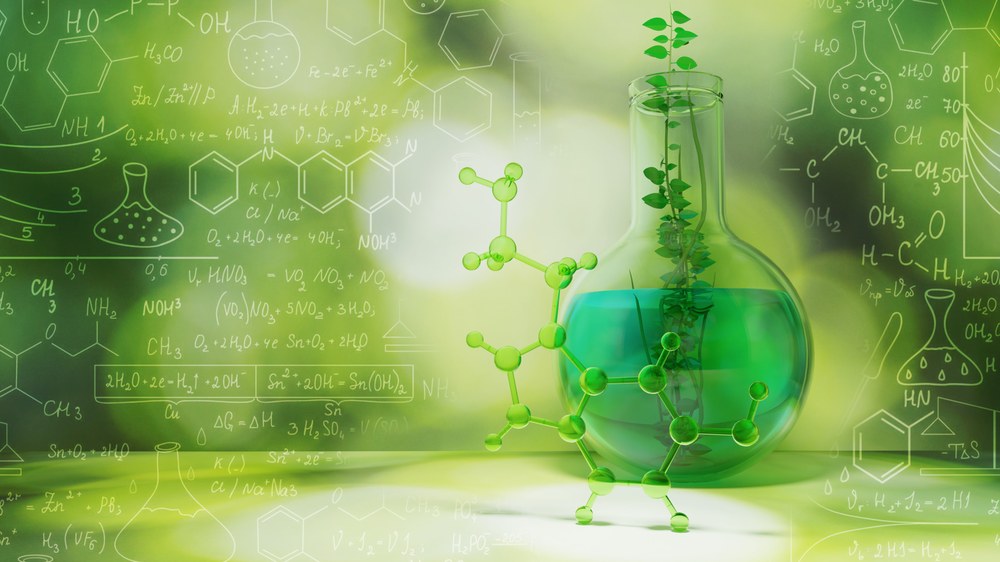How can chemical processes, products and methods be designed in such a way as to be as sustainable as possible? This is the expertise that will be acquired by students of the new Master’s degree programme in Sustainable Chemistry, which is due to start at Justus Liebig University Giessen (JLU) in the winter semester 2024/2025. The international programme covers ecological, economic and social issues such as resource consumption, energy efficiency, climate protection, and health and safety in the context of the development and use of chemical products and processes.
The programme is for German and international graduates of a Bachelor’s degree in chemistry or a related Bachelor’s programme.
“Chemistry research is indispensable for sustainable global development,” says Prof. Tom Wilke, Dean of Faculty 08 – Biology and Chemistry. “There is a high level of demand for specialists who have the necessary chemical expertise, but who are also familiar with the criteria and specifications of sustainability.”

The new programme is taken over a period of four semesters and is taught in English. In addition to an introduction to the principles of sustainability, the modules in the first year cover topics such as sustainable organic chemistry, sustainable energy technologies and the circular economy for chemical processes. The courses are taught by experts at JLU who are internationally renowned in various areas of sustainable chemistry. The programme also teaches important soft skills such as innovation management.
Alongside lectures and seminars, students are involved early on in groundbreaking research projects at JLU. From year two, they are integrated into set working groups which carry out research in the Department of Chemistry’s state-of-the-art laboratories. They complete a laboratory project in sustainable chemistry. They also study advanced topics in inorganic, organic and physical chemistry such as heavy-metal-free synthesis and catalysis, photochemistry and electrochemistry.
In collaboration with the University of Padua (Italy), the University of Ljubljana (Slovenia) and the University of Zagreb (Croatia), which make up the network DigiChem – Creating a Digital Study Environment for Sustainable Chemistry, the Master’s degree programme in Sustainable Chemistry also offers students various opportunities to take part in international exchanges.
Graduates of the new programme can pursue a wide range of career options in industry, science and the public sector. Their expertise equips them for work not only in chemical research but also for positions in environmental and educational organisations, public authorities and in politics which deal with the development and evaluation of processes in the context of sustainability.
“The Sustainable Chemistry programme gives students the potential to have a positive impact on the environment and society,” says academic adviser Prof. Hermann A. Wegner from the Institute of Organic Chemistry at JLU. “Due to its international focus, it also opens up global career opportunities.”
These are fostered by international networks with partner universities and experts in sustainable chemistry.
Applications for the Master’s degree programme in Sustainable Chemistry may be submitted between 1 and 15 June 2024 to: bewerbung.uni-giessen.de or from 1 May 2024 to www.uni-assist.de (international applicants). International applicants can obtain detailed information from JLU’s International Office, all others can consult the University’s Central Student Advisory Service.
Source
Justus-Liebig Universität Giessen, press release, 2024-03-18.
Supplier
Universität Giessen (Justus-Liebig-Universität
University of Ljubljana
University of Padua (Padova)
University of Zagreb
Share
Renewable Carbon News – Daily Newsletter
Subscribe to our daily email newsletter – the world's leading newsletter on renewable materials and chemicals









